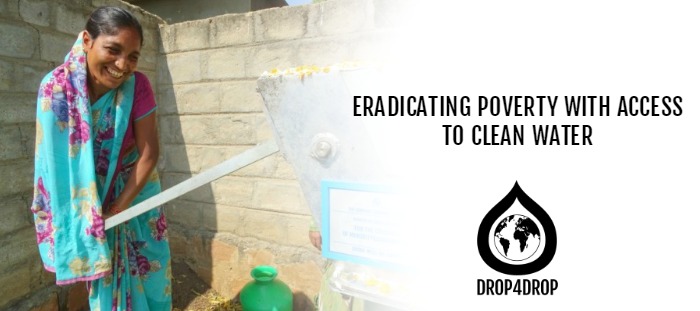
Eradicating Poverty With Clean Water
Amongst the worlds poorest countries,The WHO has found that those with access to clean water experience much more rapid economic growth. Poor countries with access to an improved water source, on average, experience economic growth of 3.7%. Less economically developed countries without widespread access to safe clean water average on much lower levels of economic growth – only 0.1%. In fact, money spent on water supply in less economically developed areas pales in comparison to the greater economic benefits. The exact level of this varies depending on the technology used and the context of the area. Estimates suggest that, for every £1 spent on water and sanitation in a poor country, the economy is boosted by somewhere between £3 and £34.
The impact of water provision on national economies is most important in countries with economies which depend largely on agriculture. In Uganda, for example, where we construct many of our projects, agriculture makes up almost all of the country’s foreign exchange earnings. Coffee, on its own, makes up over 20% of the country’s foreign exports. Agriculture is also highly important to the economy of India where a large portion of our work is carried out. In fact, agricultural jobs account for over 50% of Indian employment.
On a more local scale, the provision of clean reliable sources of drinking water can improve the economic lives of communities. The WHO estimates that by eradicating thirst globally we can gain 322 million working days per year. These working days would be gained as a result of less illness from water-borne diseases and reducing the time spent in the collection of water each day. Across the areas in which we work millions of hours are spent each day collecting water from water sources located miles from communities. This time could be spent in work or education. Time freed up for families on the most local of levels thus presents opportunities for both personal and economic development. Mrs Rizwana of the Minoritygandikovvuru community in Andhra Pradesh attests:
‘Now I am able to spend more time on my tailoring occupation because now I need not go far for water every day by spending 3 hours time. Now my income is improving.’
The stimulation of both local and wider economies is just one of the many benefits of our clean water projects. Alongside economic development, our projects reduce disease, improve the lives of children and more generally increase living standards across the communities in which we work. To find out more and to read community testimonies head over to the ‘projects’ page on our website!